Those Who Came Before Us
By Becky Chapin, Archivist
There are some days when I shake my head at the historians and archivists who have come before me. Eleanore Clise was prone to writing research notes on itty bitty pieces of paper with no context clues for the information and Malcolm Johnston’s handwriting is very hard to read with a lot of his papers missing from his collection. But I rely heavily on the work that the historians and archivists did prior to my arrival to help answer the research questions of today.
One of the earliest historians in Geneva was George Conover whose research and publications include Kanadesaga and Geneva, SENGUERAGHTA: King of the Senecas, Seneca Villages, Obsequies of Red Jacket at Buffalo October 9th 1884, The Genesee Tract, and The History of Ontario County. In fact, his work with the Native American community led to his nickname “Hywesaus” meaning investigator given to him by the Seneca people when he was adopted in 1885. (Unfortunately, given he was a white man, those histories should be taken with a grain of salt.)
Conover was also a president of the village of Geneva, so he had a front row seat to its politics and decision making. His pamphlet Early History of Geneva would have certainly been a very informed recollection given he moved to the area as a newly married young man in 1848.
George MB Hawley was considered a well-known local historian. He was interested in all manner of subjects, mainly national history, though he would do his own work in maintaining Geneva’s. His obituary in 1941 says he probably had the most extensive private collection of historical materials, his home filled with historical documents, original papers, and photographs. Indeed, Hawley had harsh words for people who did not feel the same as he about the importance of preserving records and he had some harsh words to say about Charles Bean.
In 1919, New York State adopted a law which required each municipality to appoint a public historian, from villages up to the state level; it was the first law of its kind. This is the only state which requires this appointment, as other states rely on historical societies, history teachers, and independent historians. Despite this law, it appears that the first historian did not take office until 1942. Around this time, the Geneva Historical Society had also started to cement its place in the community, renting space in 501 South Main Street for storage and exhibits.
Appointed by the city on August 22, 1942, was the Reverend Malcolm Sanders Johnston who began his work quickly. His letters reveal the difficulty in trying to preserve information and tell Geneva’s history in a truthful manner.
Johnston published a pamphlet called Elizabeth Blackwell and her Alma Mater, wrote articles for the paper, and compiled several pieces about a variety of Geneva subjects for teachers to use in the classroom. He regularly provided snippets of Geneva’s history for the annual Policeman’s Ball program. He was also an avid hymn writer and poetry enthusiast; his collection contains numerous sheets of music copyrighted to his name and sheets of poetry on a variety of subjects.
Johnston was also insistent that Caleb Benton was the originator of the name Geneva, as mentions of the Geneva name appear in 1788 letters Benton exchanged, whereas other histories give Charles Williamson credit in the 1790s. Looking through his papers, he seemed to be enthusiastic about conducting thorough research on a given subject before publishing anything, recognizing the need to ensure truthful storytelling from the start.
Johnston also realized the gravity of the time he was serving as historian, writing about the importance of preservation and proper storage so when it is time to “memorialize the successful war effort of our young men and women in a permanent and befitting shrine…” that “never again may free peoples dare to ‘forget a war’ and pretend that ‘war has been ended.’ Hitler and his nazis did not forget. And they took advantage of those who were trying to forget ’17 and ’18. That is why we are in the revival of that war.”
In February 1945, the Common Council recognized Johnston’s efforts in the minutes and passed a resolution expressing their gratitude for his tireless efforts to ensure the safety of records and for preserving the truth of Geneva’s history. Johnston passed away in 1950 while still holding the title of city historian, having served the community for seven years.
His successor Frances Houston would continue telling Geneva’s stories. She wrote numerous pieces on its history and served as the historian for the Geneva Woman’s Club. Her dedication to the Woman’s Club as a charter member has led to the preservation of that organization’s history which has its roots in the Geneva Political Equality Club.
Houston served for ten years, resigning just weeks before her death in June 1960. From here, it’s a little unclear who was city historian, as council minutes don’t mention all the appointments. At some point it seems that Laura Merritt, a curator and director here at the museum, was serving as the city historian in the mid-1960s, followed by Elizabeth Durfee whose appointment was approved in 1968.
Eleanore Clise, once archivist here, was asked (or tricked in her words) to serve starting in 1971. She remained the historian until her death in 1995 and Steve O’Malley, once curator here, was appointed in 1996. Our current city historian Karen Osburn was appointed in 2012.
The greatest contributors to our history come from the people who lived in the 19th and 20th centuries here in Geneva. But for them, they were actively collecting present day information. Their interest meant that decades later they and others could write a thorough and improved history of Geneva which we still look toward to answer the questions of today. This is why we feel it is important to collect decades past history and today’s information as well.

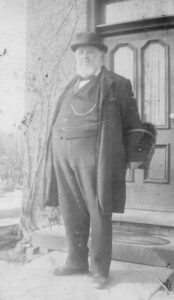
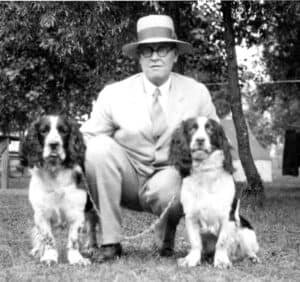
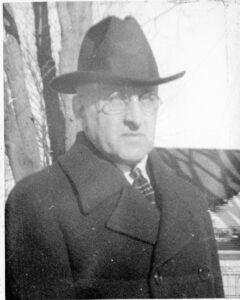
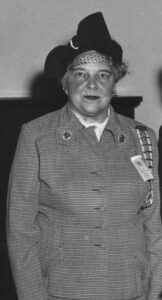
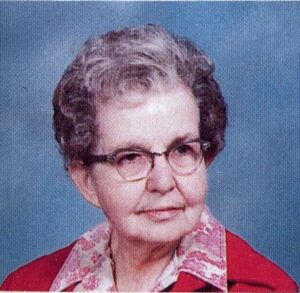
Thank you Becky.
Very interesting to learn about all the former Historians going back to the eighteen hundreds. Good research.